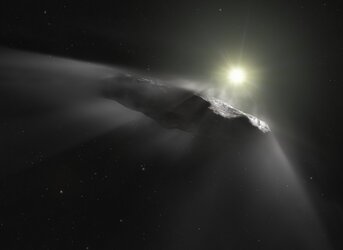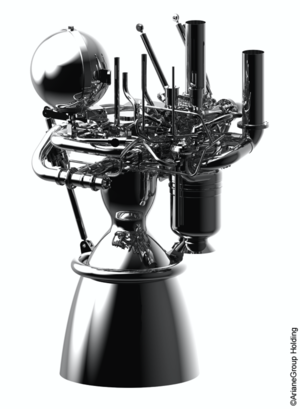New opportunity for students to learn about spacecraft communications
In brief
ESA’s Education Office is looking for university engineering students who would like to be introduced to the fascinating world of spacecraft communications. The Ladybird Guide to Spacecraft Communications Training Course 2022 will be held as an online training course from the 21st of February to the 4th of March 2022 in the afternoons (CET).
In-depth
It’s easy to take spacecraft communications for granted. Yet the art and science of sending commands to a satellite and receiving data back is of paramount importance. Without highly skilled communications engineers, there would be no space missions.

This training course will consist of formal lectures with lots of interaction with the students and will be provided by an ESA Engineer belonging to the Advanced Mission Concepts and Management Support Office of the Mission Operations Department of ESOC, the European Space Operations Centre in Darmstadt, Germany. He will relay real stories of operations engineers battling wayward spacecraft – sometimes winning and sometimes losing. The way communications systems are designed can have a crucial impact on how they are used and on what problems can occur!
In addition to the lectures, the students will be asked to apply their gained knowledge during a challenging group project. The students will also learn about ESA’s European space Security and Education Centre (ESEC) and the activities performed on site, including Galileo and PROBA spacecraft’s operations.
At the end of the training course, the students will have a solid understanding of the challenges of communicating with a spacecraft and the subsystems involved in communications (both on-board and on the ground): what can go wrong, troubleshooting, and traps to be avoided during operations and testing.
Preliminary schedule:
| Day 1 | Introduction |
| Day 2 |
The Challenge Modulation (Part 1) |
| Day 3 |
Modulation (Part 2) Demodulation |
| Day 4 |
Coding ESA & ESA Education Programme |
| Day 5 |
Protocols Transmission (Part 1) |
| Day 6 |
Transmission (Part 2) Reception |
| Day 7 |
Real Ground Stations Wrap-up |
| Day 8 |
Presentation of ESEC Introduction to Galileo Programme Evaluation |
| Day 9 | Group project |
| Day 10 |
Group project Conclusion |
Who can apply?

Students enrolled in university who fulfil the following criteria:
- aged minimum 18 years old. ESA Academy and relevant partners will only appraise applications from students who have no or limited professional experience in relevant engineering or space-related topics;
- be a citizen of an ESA Member State, Canada, Latvia, Lithuania or Slovenia;
- be enrolled as a Bachelor, Master, or PhD student in a university for the year 2021-2022 (not graduating before the training course);
- be studying an engineering subject.
Selected students will be requested to attend all afternoon sessions live.
Upon completion of the training course students will be evaluated via an online questionnaire and will receive a certificate of participation and a course transcript, allowing them to request ECTS credit(s) from their respective universities.
How to apply
- Fill in the application form;
- Upload a motivation letter (PDF, maximum 1 page, no images);
- Upload a CV (Europass format, PDF, maximum 2 pages);
- Upload a formal recommendation letter (PDF, maximum 1 page, including signature, no images) from a university professor or academic supervisor of current university (if not possible due to the current COVID-19 situation in your country, please ask a university professor or an academic advisor to send a recommendation email to tlp@esa.int);
- Upload a copy of academic records (PDF);
All answers and documents should be in English (except academic records if not available).
Students wishing to apply for the training course must submit their applications by 19th January 2022 23:59 CEST.
For more information, please contact tlp@esa.int















 Germany
Germany
 Austria
Austria
 Belgium
Belgium
 Denmark
Denmark
 Spain
Spain
 Estonia
Estonia
 Finland
Finland
 France
France
 Greece
Greece
 Hungary
Hungary
 Ireland
Ireland
 Italy
Italy
 Luxembourg
Luxembourg
 Norway
Norway
 The Netherlands
The Netherlands
 Poland
Poland
 Portugal
Portugal
 Czechia
Czechia
 Romania
Romania
 United Kingdom
United Kingdom
 Slovenia
Slovenia
 Sweden
Sweden
 Switzerland
Switzerland

























